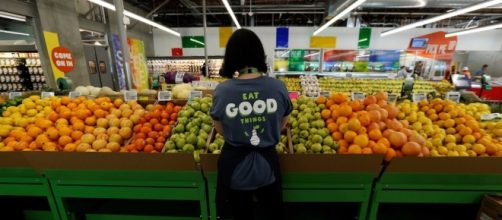Amazon users and Whole Foods lovers alike are sure to be scrambling for information on the $13.4 billion Deal made last week. Much talk and speculation have been going around about what this will mean when it comes to other competing stores, the economy, and the companies involved.
What will it mean for the consumer, though?
Once the deal was closed, Amazon released information on what changes they would make and how the company would go about running the business. For starters, the company assured Whole Foods shoppers that the stores would not disappear and would be keeping their name.
However, in the future, Amazon could integrate its own Prime member grocery delivery service, Amazon Fresh, with Whole Foods.
The company had already opened two stores in Seattle where there were no checkout lines; Customers could just walk out with their groceries with the charges added to their Amazon accounts with the app, Amazon Go. Now that they own Whole Foods, it's possible that the no-checkout idea could be integrated into those stores as well.
Some other experiments to look out for involve being able to order your groceries for pick up or even delivery to your home, possibly even involving Alexa, Amazon's voice assistant program, and a shopping cart that automatically tracks what you put into it.
When it comes to convenience in services, there doesn't seem to be anything negative for customers.
What about those high prices though?
Good news for aspiring Whole Foods shoppers that just cannot bear the burn in their wallet: the deal will result in a drop in prices for many key products sold in stores. The grocery industry has become quite the battleground in the economy, so competing stores will have to keep their prices in check to gain and keep loyal customers. Amazon's mission has been to make shopping the most efficient and cost-effective that it can be. It's not a surprise that they will now attempt to make Whole Foods a strong competitor in this market.
A good way to drop prices is to cut the middle man.
Amazon is expected to get rid of all third party vendors and therefore keep down the cost at the register. Decreases in price up to 43 percent have been seen immediately following the conclusion of the deal. This includes products such as organic avocados, brown eggs, kale, bananas, almond butter, apples, salmon, and the list goes on. However, it is good to note that Amazon has been known to lower prices below competitors' prices for popular products while raising prices for less popular items.
Prime members should also be very excited. Discounts and benefits will be available to Amazon Prime members as well as the added perks of buying products from online through Prime Pantry and other capabilities such as Prime Now and Amazon Fresh.


